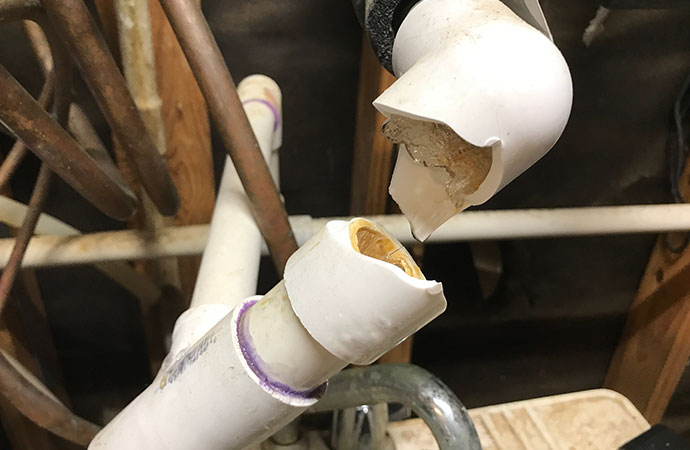10 Tips to Avoid Your Pipes Freezing in Winter
There is nothing worse than waking up after a long and cold winter’s night just to find that none of your faucets are working because your pipes have frozen solid. This is a nuisance for many reasons, starting with the costs for professional thawing of pipes, to the wait that you will endure if you can’t pay someone to do it for you, as well as the nuisance of not having an essential resource in your home. Having water is one of those things that are difficult to go without, and of course just as your pipes are freezing you always seem to have more need for your home’s water supply. Well, if you don’t want to go through the nuisance or costs of freezing pipes, which could easily reach $200 or more, you can follow these 10 tips to avoid your pipes freezing in winter. These tips will help ensure that you don’t get one of these bothersome mornings after a cold midnight freeze. Here is how to avoid freezing pipes during the winter months:

- Insulating pipes is a must. If you are in an older home, you will find that not many, if any of the pipes are insulated, whether they once were or never have been. With most new homes, the pipes have already been insulated, but there are times when you must look them over to ensure they are. If not, insulate the pipes to avoid them getting too cold and freezing when the temperature drops.
- Leave a slow drip on. If the water is flowing, chances are that it won’t freeze up as quickly; giving you time to thaw out what does freeze before your water is halted. At night before bed, or before leaving if you will be away for long, you can turn the faucets on just a smidge so there is a slow drip that will prevent your pipes from freezing.
- Frequently turn faucets on and off. On days with sub-freezing temperatures, pipes can freeze fairly quickly. For this reason, it is often a good idea to go around the house turning faucets on and off to ensure a good flow of water and unfreeze any frozen water in the pipes before it sets in.
- Heated tape. If you do experience a bit of freezing in your water, which can affect your water’s flow, you can use heated tape to ensure the pipes remain warm and free from freezing over. This is also a great solution for those of you who have waited too late and may have already experienced some pipes freezing.
- Make sure the area of the main pipes is warm and insulated. Most times, the pipes that freeze are those located under and outside of the house, those that are exposed to the coldest of the weather. For these pipes, make sure the part of the house in which they can be found that there is a sufficient amount of warmth and insulation to ensure the cold air isn’t penetrating through to the pipes.
- Keep space heaters in rooms that have pipes that freeze. If last winter you found that your bathroom pipes were freezing before any others due to the temperature in the bathroom, then it is a wise tip to make sure you have a good and functioning space heater in that room to make sure the pipes remain warm. This can be done within any room where the pipes frequently freeze in the winter.
- Make sure your pipe system is updated. Older pipes comprised of copper and steel are known for freezing fairly easily. For this reason, you must check your pipe system to ensure that it has been updated. If not, it is a good idea to either update or insulate very well.
- Shut off the water supply to any outside taps of your home. These are the first of your pipes to freeze, and although located outside, can cause major interior damage. For this reason, you should find the shutoff valves for these pipes and cut them off before the winter arrives.
- Don’t forget the hot water pipes! There are many with the misconception that only the cold water pipe is going to freeze, leaving them with the ignorance to leave hot water pipes unprotected. These pipes must also be insulated to prevent freezing and the risk of a burst water pipe in the home.
- Drain all water from pipes if leaving for an extended amount of time. If you are going on a winter vacation, cut the main water valve off and drain all water from pipes to ensure that there is no freezing and damage while you are away.
Frozen water pipes are no joke. The actual pipe damage caused by your pipes freezing can be the last thing on your mind, behind all the damage to your home and belongings. The best way to avoid freezing pipes is to ensure that you follow these and other tips to prevent frozen pipes in the winter.
Call us for more inquiries at 385-503-8676.







